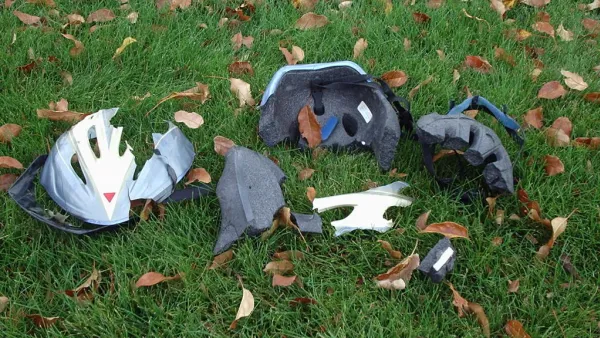Irvin Dawid discovered Planetizen when a classmate in an urban planning lab at San Jose State University shared it with him in 2003. When he left San Jose State that year, he took with him an interest in Planetizen, if not the master's degree in urban & regional planning.
As a long-time environmental activist, he formed the Sustainable Land Use committee for his local Sierra Club chapter and served six years on the Bay Area Air Quality Management District’s Advisory Council from 2002-2008. He maintains his interest in air quality by representing Sierra Club California on the Clean Air Dialogue, a working group of the Calif. Environmental Dialog representing business, regulatory and public health/environmental interests.
Major interests include transportation funding, e.g., gas taxes, vehicle miles traveled (VMT) fees, road tolls and energy subsidies that lead to unlevel playing fields for more sustainable choices.
He hails from Queens (Bayside) and Long Island (Great Neck); received an AAS in Fisheries & Wildlife Technology from SUNY Cobleskill and a B.S. from what is now Excelsior College.
After residing for three years on California’s North Coast, he’s lived on the San Francisco Peninsula since 1983, including 24 years in Palo Alto. Home is now near downtown Burlingame, a short bike-ride to the Caltrain station.
He’s been car-free since driving his 1972 Dodge Tradesman maxi-van, his means to exit Long Island in 1979, to the junkyard in 1988.
Major forms of transportation: A 1991 'citybike' and monthly Caltrain pass, zone 2-2. "It's no LIRR, but it may be the most bike friendly train in America."
Irvin can be reached at [email protected]
Four Options to Keep the Highway Trust Fund Solvent
MAP-21 expires on September 30, 2014. The following year, the Highway Trust Fund will be insolvent according to the CBO. Alternatives involve user fees paid by motorists: the gas tax and VMT fee, and two others that bear no connection to driving.
Gas Tax Woes: A Tale of Two New England States
As states struggle with ways to increase transportation revenue to shore-up aging infrastructure, we look at Conn. and N.H. Due to indexing, one will increase its gas tax by 4-cents on July 1, while the other rejected a 12-cent increase over 3 years.
Major Oil Pipeline Rejected - But Will Alternatives Have Greater Environmental Impacts?
Kinder Morgan's proposed $2 billion 'Freedom Pipeline' to transport West Texas oil to California refineries has been rejected - not by a governmental entity as occurred with the Northern Gateway, but by oil refineries opting to ship by rail instead.

Bike Helmet Safety Not What We Thought It To Be
According to Jim Titus, two federal government agencies will withdraw their claims that bike helmets are "85% effective".
Indexing Gas Taxes: Kentucky Shows How
While some state struggle to raise the gas tax by even a few cents a gallon, indexing the excise tax to inflation avoids these costly battles. Kentucky approved such legislation over 10 years ago. On July 1, the gas tax will increase by 2.4 cents.

























